The Carnegie Medal for Writing, established in 1936, is a British literary award that annually recognises one outstanding new English-language book for children or young adults. It is conferred upon the author by the Chartered Institute of Library and Information Professionals (CILIP), who calls it "the UK's oldest and most prestigious book award for children's writing". CILIP is currently partnered with the audio technology company Yoto in connection with the award.

Joanne Michèle Sylvie Harris is an British author, best known for her 1999 novel Chocolat, which was adapted into a film of the same name.

Dame Margaret Drabble, Lady Holroyd, is an English biographer, novelist and short story writer.
The John Llewellyn Rhys Prize was a literary prize awarded annually for the best work of literature by an author from the Commonwealth aged 35 or under, written in English and published in the United Kingdom. Established in 1942, it was one of the oldest literary awards in the UK.
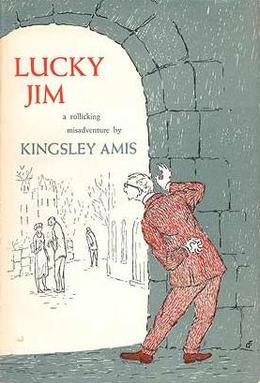
Lucky Jim is a novel by Kingsley Amis, first published in 1954 by Victor Gollancz. It was Amis's first novel and won the 1955 Somerset Maugham Award for fiction. The novel follows the academic and romantic tribulations of the eponymous James (Jim) Dixon, a reluctant history lecturer at an unnamed provincial English university.
The Guardian Children's Fiction Prize or Guardian Award was a literary award that annual recognised one fiction book written for children or young adults and published in the United Kingdom. It was conferred upon the author of the book by The Guardian newspaper, which established it in 1965 and inaugurated it in 1967. It was a lifetime award in that previous winners were not eligible. At least from 2000 the prize was £1,500. The prize was apparently discontinued after 2016, though no formal announcement appears to have been made.
The Carnegie Medal for Illustration is a British award that annually recognises "distinguished illustration in a book for children". It is conferred upon the illustrator by the Chartered Institute of Library and Information Professionals (CILIP) which inherited it from the Library Association. CILIP is currently partnered with the audio technology company Yoto in connection with the award, though their sponsorship and the removal of Greenaway’s name from the medal proved controversial.
The Somerset Maugham Award is a British literary prize given each year by the Society of Authors. Set up by William Somerset Maugham in 1947 the awards enable young writers to enrich their work by gaining experience in foreign countries. The awards go to writers under the age of 35 with works published in the year before the award; the work can be either non-fiction, fiction or poetry.

David Peace is an English writer. Best known for his UK-set novels Red Riding Quartet (1999–2002), GB84 (2004), The Damned Utd (2006), and Red or Dead (2013), Peace was named one of the Best of Young British Novelists by Granta in their 2003 list. His books often deal with themes of mental breakdown or derangement in the face of extreme circumstances. In an interview with David Mitchell, he stated: "I was drawn to writing about individuals and societies in moments that are often extreme, and often at times of defeat, be they personal or broader, or both. I believe that in such moments, during such times, in how we react and how we live, we learn who we truly are, for better or worse."
Gordon Burn was an English writer born in Newcastle upon Tyne and the author of four novels and several works of non-fiction.

Patrick Ness FRSL is an American-British author, journalist, lecturer, and screenwriter. Born in the United States, Ness moved to London and holds dual citizenship. He is best known for his books for young adults, including the Chaos Walking (2008-2010) trilogy and A Monster Calls (2011).

The Peppered Moth is a 2000 novel by English writer Margaret Drabble; it is her fourteenth published novel. The novel follows the fictional experiences of three generations of women within one family, and contains several elements that are loosely based on Drabble's own biographical experience.
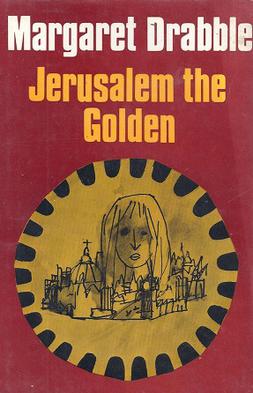
Jerusalem the Golden is a novel by Margaret Drabble published in 1967, and is a winner of the James Tait Black Memorial Prize in 1967.

The Witch of Exmoor is a 1996 novel by Margaret Drabble. The novel is a social novel, with a focus on exploring the state of post-Thatcher Britain through the Dickensian satire of the Palmer family. The title describes the satirical protagonist, Frieda Palmer, who provides the source of much of the social commentary.
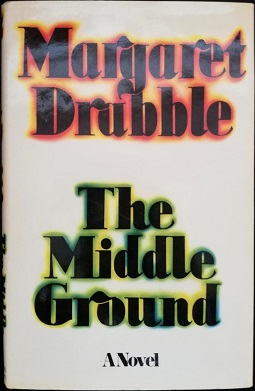
The Middle Ground is a 1980 novel by British novelist Margaret Drabble. It is her ninth published novel. The novel explores the "crisis of British urban life" through the eyes of a middle aged journalist, Kate Armstrong.

The Red Queen is a 2004 novel by British novelist Margaret Drabble. The novel describes the trip of a British academic on a trip to Seoul to give a paper at a conference. At the beginning of the novel, the academic, Dr. Babs Halliwell, reads the memoir of a 19th-century Korean princess.
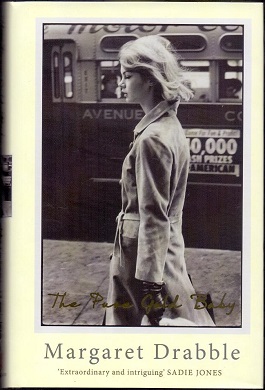
The Pure Gold Baby is British novelist Margaret Drabble's 18th novel, first published in 2013. The novel was her first novel to be published in seven years, following The Sea Lady. In 2009, Drabble had pledged not to write fiction again, for fear of "repeating herself."
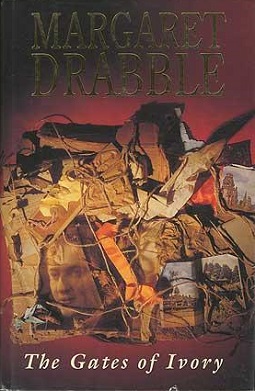
The Gates of Ivory is a 1991 novel by novelist Margaret Drabble. The novel is the third in a series of novels, following The Radiant Way and A Natural Curiosity. The novel continues the stories of several middle aged intellectuals introduced in the last two novels. The novel also introduces a new character, Stephen Cox who is loosely based on J.G. Farrell.
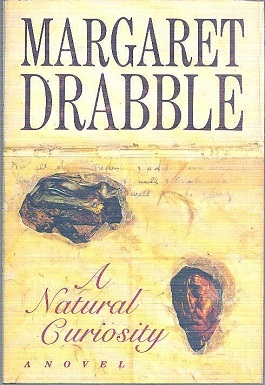
A Natural Curiosity is a 1989 novel by Margaret Drabble. The novel is an unintended sequel to Drabble's 1987 novel The Radiant Way, which follows the lives of the three protagonist women first introduced in that novel. The novel continues Drabble's interest in exploring the contemporary experience of the British middle class through the eyes of women.
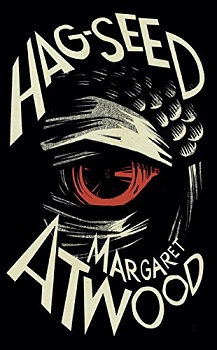
Hag-Seed is a novel by Canadian writer Margaret Atwood, published in October 2016. A modern retelling of William Shakespeare's The Tempest, the novel was commissioned by Random House as part of its Hogarth Shakespeare series.













